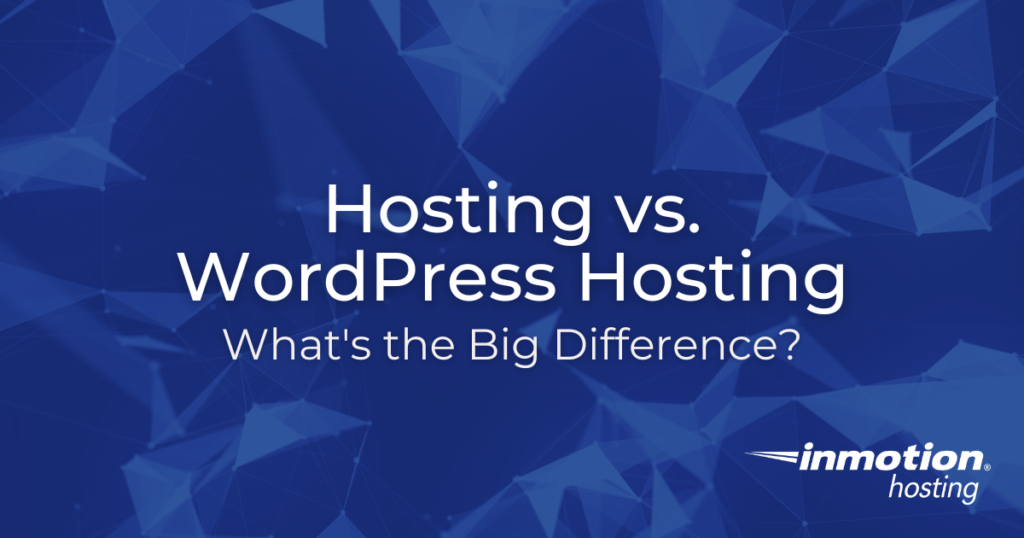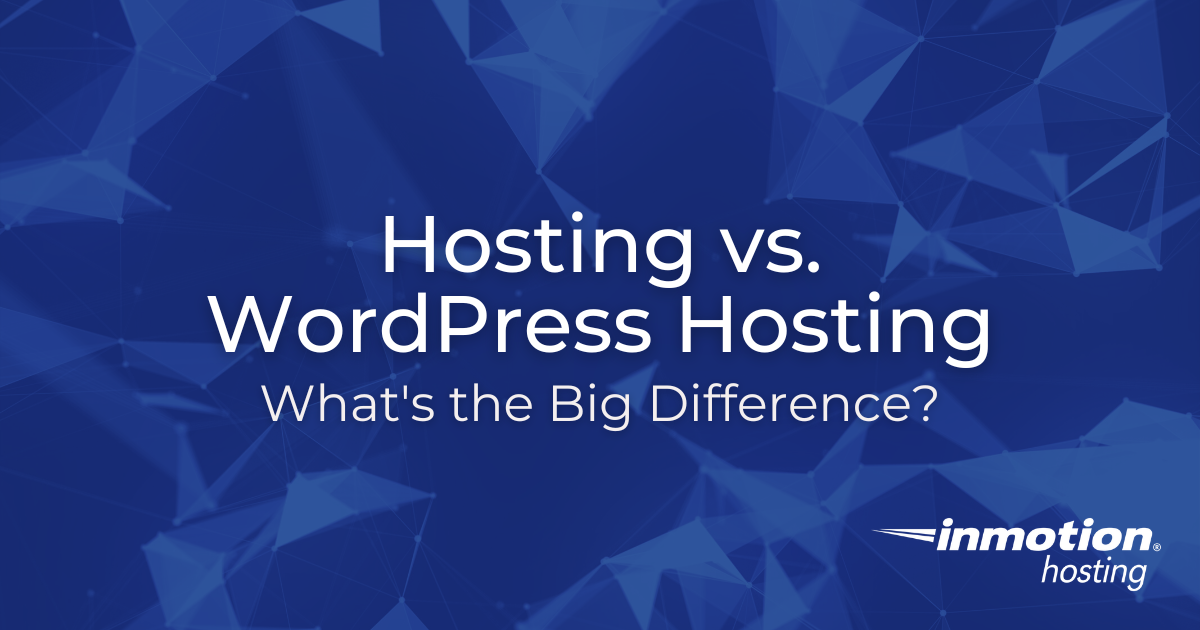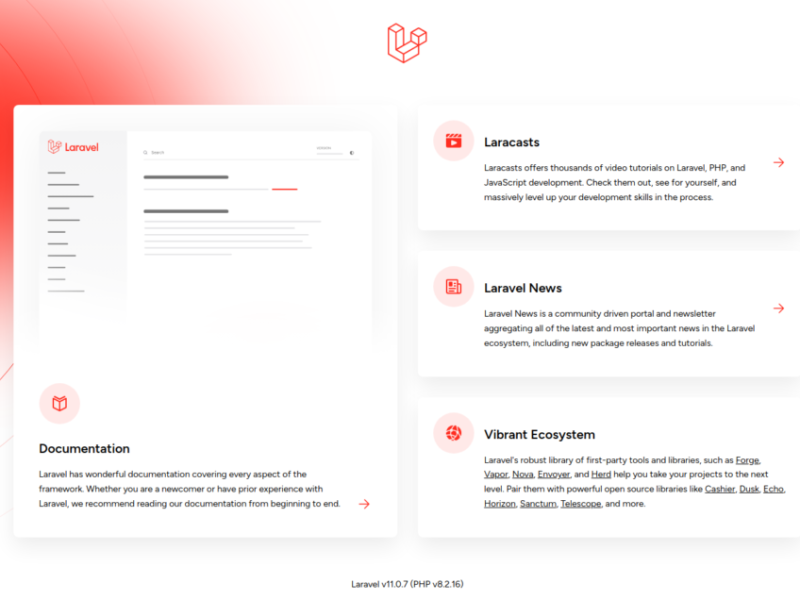
When looking at new web hosting providers, you’ll often find specialized hosting plans like WordPress hosting. Additionally, looking at shared, VPS, and dedicated hosting options can all be confusing for some users.
In this article, we will simplify the difference between traditional hosting and WordPress hosting plans for better clarity when researching hosting companies.
Understanding Web Hosting
In the simplest terms, web hosting is a service that provides storage space and access to websites or web applications on a server. Essentially, it involves renting server space from a hosting provider that allocates resources to host a website and make it available to users on the Internet.
Hosting includes different types of servers and hosting plans, depending on the needs of the website or application, such as shared hosting, virtual private servers (VPS), dedicated servers, cloud hosting, and managed hosting.
Hosting also usually includes additional features such as domain name registration, email hosting, backups and security measures to protect the website and its data.
Without web hosting providers, site owners would need their own server infrastructure to get their website online, or host it directly from their home computer. However, this means that in the event of a power outage or other problems at home, the website will also be lost.
Web hosting is an efficient, affordable, and secure way to get your website up and running on the Internet so that end users can connect to it.
Different types of web hosting
In the field of web hosting, there are four main types of traditional hosting plans. Shared Hosting, VPS Hosting, Dedicated Server Hosting, Cloud Hosting and Managed Hosting.
- Shared hosting – This type of hosting that allows multiple users with individual website accounts to use a single hosting server. This is usually the most affordable hosting option, as resources and server space are shared between accounts.
- VPS hosting – In a virtual private server hosting plan, the physical server is also shared among a small number of users. These virtual servers are separated from each other and provide users with dedicated resources, thus giving them more power and control over the server.
- Dedicated hosting – With dedicated server hosting, you get access and control over a dedicated server that is not shared with anyone else. This concept is often referred to as a single-tenant server. With a dedicated server, you get full access to its resources, storage and configuration using root access and/or a web-based control panel.
- Cloud hosting – These types of plans host your account and website(s) on multiple servers. This network of virtual and physical servers provides additional flexibility and power to your account, but these plans are sometimes less manageable than others.
- Managed hosting – With managed hosting, the hosting company takes care of all technical aspects of hosting, including server setup and maintenance, security, backups, updates, and support. This is the best option for customers who want to free themselves from the responsibility of managing infrastructure so they can focus on their website or application.

Understanding WordPress Hosting
WordPress is the most popular CMS (Content Management System) currently available. WordPress is one of the easiest platforms to create a website. Which explains why almost 43% of the websites created in the world. Built using WordPress.
WordPress hosting plans are traditional hosting plans that are specifically designed and optimized to host websites built on WordPress. There are several types of WordPress hosting, including shared hosting, managed WordPress hosting, virtual private servers (VPS), dedicated servers, and cloud hosting.
Types of WordPress Hosting
Shared WordPress hosting It involves sharing server resources with other websites and is the most affordable option. These plans come with pre-installed WordPress and usually use a web-based control panel like cPanel to manage the server, domains and email services.
Managed WordPress hosting Offers an optimized and managed server infrastructure specifically designed for WordPress websites with features such as automatic updates, security and performance optimization.
WordPress can also be hosted on VPS and dedicated servers that offer dedicated resources for higher performance and scalability.
Each type of WordPress hosting has its own advantages and suits different needs and budgets.
Most WordPress hosting plans share similar features as described below.
- One-click installation of WordPress or pre-installed – This is to ensure that you can get started on your website the moment you purchase your plan.
- Premium themes and plugins – Often the perk that attracts freelancers and web designers, the ability to access or purchase premium plugins and tools is the popular features they offer.
- Advanced caching and optimization tools – Website speed is one of the main concerns for users with WordPress, as the ability to edit and modify your site with plugins and other plugins can slow it down. Thus, WordPress hosting plans offer optimized servers with features like Redis Caching, NVME SSD and more.
Managed WordPress hosting
Similarly, managed WordPress hosting plans have recently grown in popularity. As its name suggests, managed WordPress hosting plans will have some level of management by your hosting provider.
The most common types of management come in the form of server updates and access to custom tools for website maintenance, server configurations, and theme and plugin updates. These will vary depending on your hosting provider, so we recommend you review their features to fully understand what you’re getting in their hosting plans.

InMotion Central is InMotion Hosting’s latest managed WordPress hosting plan.
Fully isolated VPS servers boast NVMe SSD drives optimized with our UltraStack technology and Redis Persistent Object Caching for the fastest WordPress experience.
InMotion Hosting’s servers are 100% owned by the company and are not leased from Google Cloud or AWS. Because of this, we can offer more resources to customers at a reasonable price.
Improve the performance and security of your WordPress website with our new managed WordPress hosting plans. Get up to 40x faster with dedicated resources, server caching and optimization tools.
High quality VPS
99.99% uptime
Free SSL and dedicated IP
Advanced server caching
See WordPress VPS plans
What is the difference between web hosting and WordPress hosting?
Hosting is a general term that refers to the service of providing storage space and access to websites or web applications on a server. The most common types of web hosting are shared hosting, virtual private servers (VPS), dedicated servers, cloud hosting, and managed hosting.
In contrast, WordPress hosting is a specific type of hosting that is optimized for WordPress websites. WordPress hosting typically comes with pre-installed WordPress software, specialized features and support tailored to the needs of WordPress users. This type of hosting is optimized for WordPress’ unique requirements, such as PHP and MySQL compatibility, and may offer additional security measures and performance optimizations designed specifically for WordPress.
While hosting can support a wide range of applications and websites, including WordPress, WordPress hosting is designed to meet the specific needs of WordPress users, providing a more streamlined and optimized experience.
In short, hosting is a general term that refers to the service of hosting websites or web applications on a server, while WordPress hosting is a specific type of hosting optimized for WordPress websites.
How to tell if WordPress hosting is right for you
If you already have a website built into WordPress, great! WordPress hosting will be a good option for you.
If you haven’t built your site yet, have been working with another type of CMS and are thinking about switching for your next venture, or even redesigning your current website, WordPress hosting is a great option regardless.
WordPress is easy to use, easy to modify and actively receives updates every year. We highly recommend WordPress for beginners or current site owners who want to try something new, and WordPress hosting is a good place to start.



